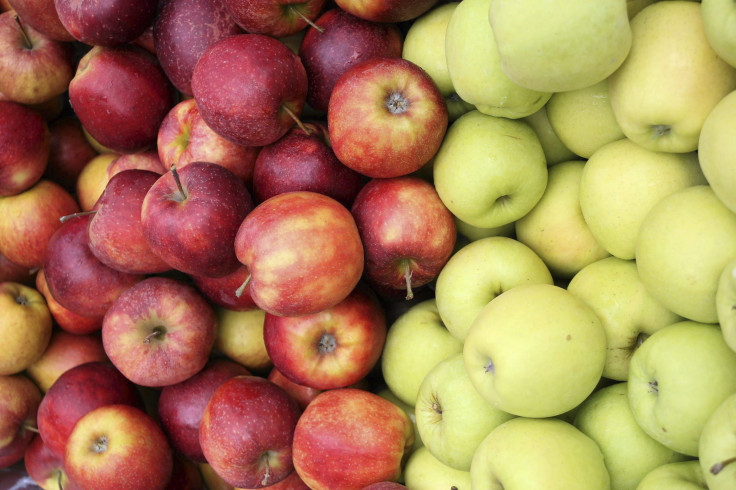GMO Apples And Potatoes Approved By FDA; Labeling Not Required

The U.S. Food and Drug Administration approved two varieties of genetically engineered apples and six varieties of genetically engineered potatoes for human consumption Friday. The agency concluded that “these foods are as safe and nutritious as their conventional counterparts.”
A genetically modified crop is one whose DNA has genetic material from other species that alters the crop's growth or functioning. Genetically modified organisms (GMOs) have been a source of controversy for about two decades, since the world’s genetically modified produce became commercially available in the mid-1990s. A Pew Research Center survey published in January found that just 37 percent of Americans considered GMOs safe to eat, compared with 88 percent of scientists.
The apples approved are known commercially as Arctic apples and were modified by the company Okanagan Specialty Fruits to resist bruising and browning. The varieties of Innate potatoes modified by J.R. Simplot were similarly engineered to have less bruising, and they were also altered to produce less acrylamide, a potentially carcinogenic chemical that can be created in the frying process.
The agency didn't say it would require companies to label the produce as being genetically modified. “In certain circumstances, characteristics of these varieties of apples and potatoes that differ from their conventional counterparts may require disclosure to the consumer,” it said. It also advised J.R. Simplot and Okanagan in separate letters, “It is a producer’s or distributor’s responsibility to ensure that labeling of the foods it markets meets applicable legal requirements.”
The apples and potatoes were approved as part of a voluntary consultation process in which the FDA reviewed information submitted by the companies about how the foods had been changed on a molecular level and how they compared nutritionally with conventional apples and potatoes. The agency’s statement said it had “no additional food safety questions” related to Arctic apples and Innate potatoes.
Although it said there was no reason the re-engineered apples and potatoes would pose safety risks, the Center for Science in the Public Interest criticized the way in which the crops were approved. “The process for allowing such new crops is badly flawed,” the center’s biotechnology director, Gregory Jaffe, said in a statement Friday, criticizing the fact that the consultation was purely voluntary. “Congress should pass legislation that requires new biotech crops to undergo a rigorous and mandatory approval process before foods made from these crops reach the marketplace."
In February, the U.S. Department of Agriculture approved Artic apples for cultivation and sale, saying it had found that the modified apples were “unlikely to pose a plant pest risk to agriculture” or seriously affect the human environment. Those apples are expected to become commercially available in 2017. At the time, some of those who oppose genetically modified crops argued that the department had “glossed over the possibility of unintentional effects associated with the technology used to engineer these apples," among other potential consequences.
© Copyright IBTimes 2024. All rights reserved.






















